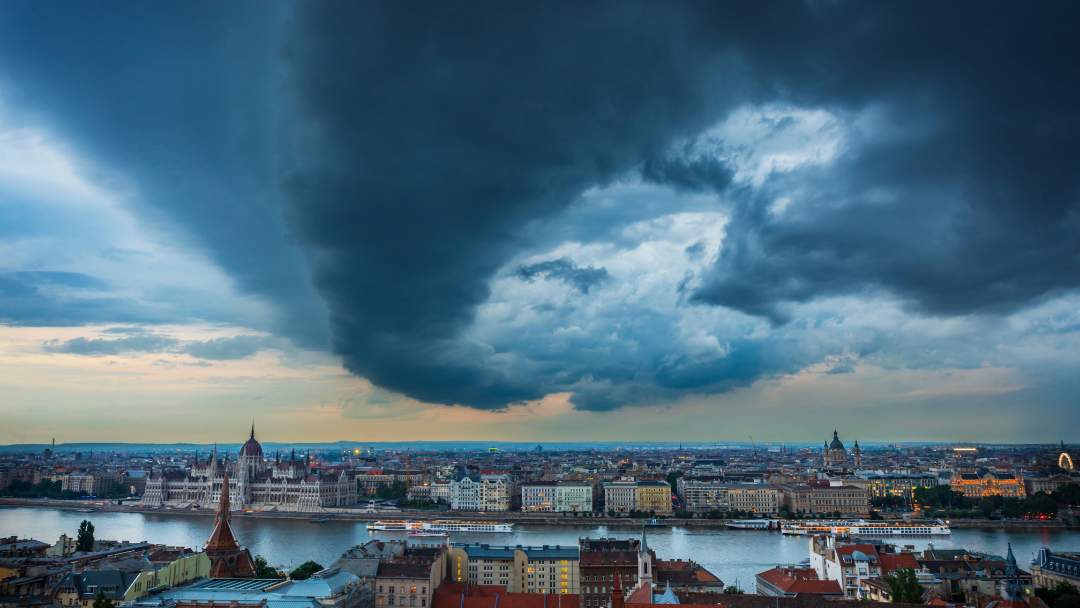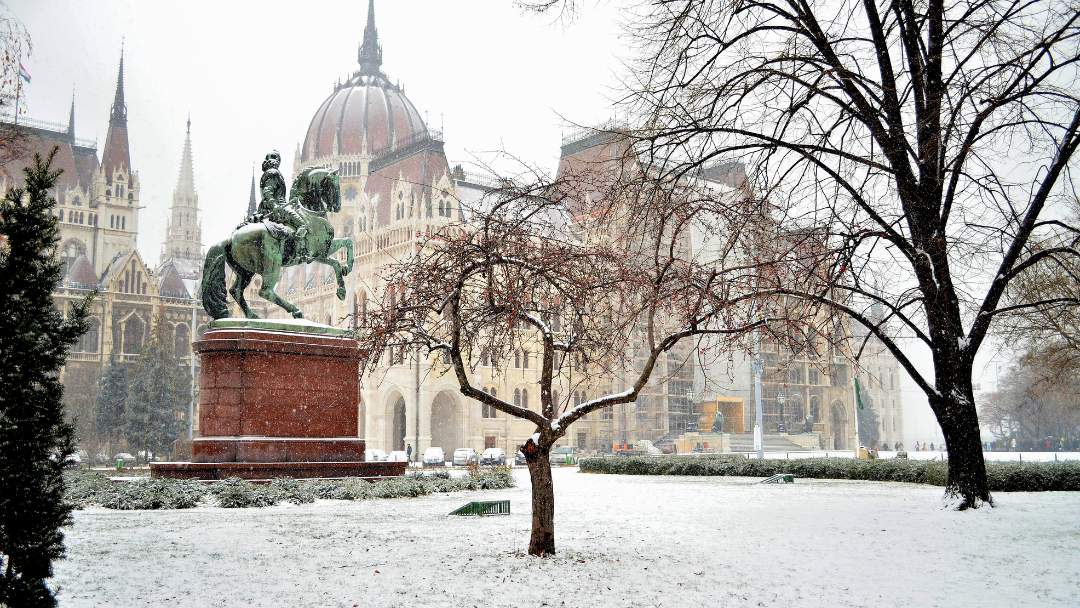Planning for the weather when relocating to Hungary
by Stuart McAlister, Managing Director, Inter Relocation
I moved to Hungary a long time ago, so long ago that I don’t like to think about it because it reminds me that I am no longer the spring chicken I once was.
Understanding the Weather When Relocating to Hungary
I’m British, and I moved from northern England via Lake Balaton to Budapest in what turned out to be one of Hungary’s hottest ever summers. It was brutal, I couldn’t sleep at night, my asthma flared up (only to disappear, forever, shortly after I moved to this drier climate) and generally I struggled to cope.

Stuart McAlister, shortly after relocating to Hungary
Surviving Hungary’s Scorching Summers – Getting Ready for Hungary’s Harsh Winters
In Preston, Lancashire, where I grew up, it’s considered cold if we hit zero degrees Celsius (32 degrees Fahrenheit), and it’s cracking the flags (a bit of northern English slang for you there) if it’s 25 degrees (77 degrees Fahrenheit).

Air conditioning units in a Hungarian apartment help to survive the summer heat
In that first summer in Hungary, the thermometer hit 40 degrees Celsius (104 degrees Fahrenheit), and I was far away from affording a home with air-conditioning. That was brutal enough, but come winter, there was an entire month where I went out to work, and it was -15 to -20 degrees Celsius (5 to -4 degrees Fahrenheit) with a good 30 cm (one foot) of snow, which even at 8 a.m. someone had dutifully swept from the pavement and laid salt to avoid it being slippery.
I realised I had been used to a quite narrow 25-degree spread in temperature, and now I had a far more extreme 60-degree spread to deal with. Needless to say it was an eye-opener.
Dealing with Weather Fronts in Hungary
Then there was “the front.” During my first few years in Hungary, people would talk about feeling lethargic, having headaches, and blaming this mysterious “front.” Growing up in England, we usually have three or four weather fronts competing for our attention at any one time. If the weather were allowed to impact our daily lives, we’d never get anything done.
I treated these complaints as a sign of weakness, that is, until I started to experience unexplained symptoms myself. It turns out that the Carpathian Basin experiences such fronts, such strong changes in air pressure that it produces symptoms in those living in it.
Now I will admit that sometimes the headache and lethargy I felt were probably more the result of poor-quality beer and pálinka, but often it really was the infamous “front.”

Dark clouds over Budapest
Why Weather Planning is Crucial for Families Relocating to Hungary
Why am I sharing this story? I was young and relocated without giving much thought to the weather in my destination country. Being young, single, and resilient, I had some sweaty nights in the summer and found that even with my northern English/Celtic blood, I needed to expand my winter wardrobe.
A relocating family, however, could really come unstuck if they don’t plan well ahead for the vagaries of Hungarian weather. Every time I have the pleasure of talking with someone who plans to relocate to Hungary, I make sure to talk a little about the local weather, so that my customer is well prepared in advance of their arrival.
Being British, I love to talk about the weather, and for once, I can actually do so while imparting useful information.




